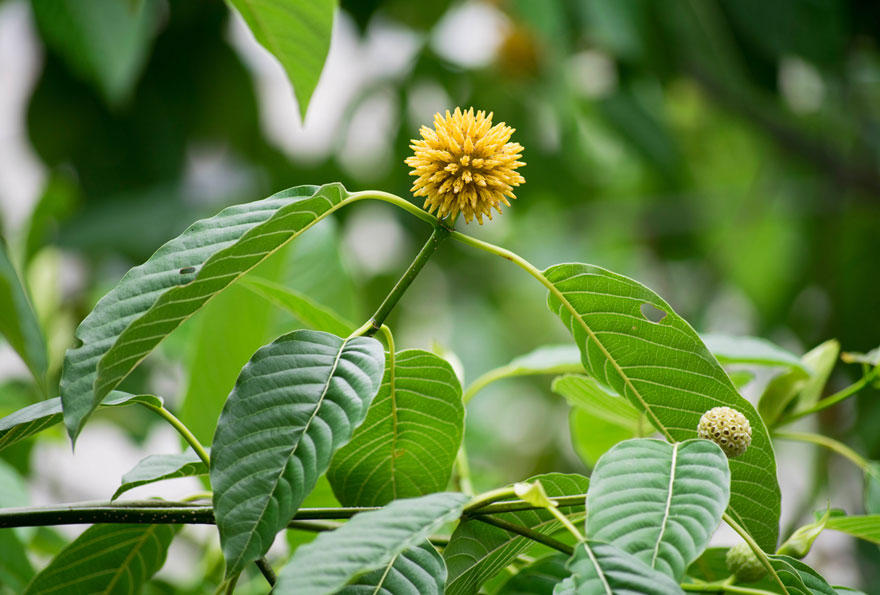
15 Feb Kratom, the New Opioid: Not as Safe as You Think
What is kratom?
Kratom, also known as ketum, is a mind-altering substance derived from a tropical tree (Mitragyna speciosa) found in Southeast Asia. It is marketed as a regular supplement to ease anxiety, increase energy and relieve pain, and it is sold in the form of pills, powder or gum. Kratom’s effects are similar to those of opioids and stimulants. When ingested in large amounts, its main active ingredients, mitragynine and 7-α-hydroxymitragynine, reduce pain and produce pleasure and relaxation. When ingested in smaller amounts, kratom increases alertness and enhances social interaction.
How did kratom come to the scene?
Kratom leaves have been used as an herbal supplement in Thailand, Indonesia, Papua New Guinea and Malaysia for centuries to treat pain and opiate withdrawal symptoms. Starting in 2000, kratom has become popular in Western countries for its herbal remedies in addressing withdrawal symptoms of drug and alcohol addiction, even though it has not been FDA-approved for such uses. Although still legal in the United States as a supplement, kratom was banned in Thailand and Malaysia.
Is kratom dangerous?
Kratom has been linked to deaths in association with its use in conjunction with other substances, such as alcohol, opioids, benzodiazepines, cough syrup, and other drugs. Users may develop a dependence on kratom, which could result in withdrawal symptoms including the following: irritability, aggression, muscular aches, insomnia, perspiration, constipation, mood lability, increased urination, and jerky movements. Long-term use of kratom may lead to anorexia, weight loss, and skin darkening. According to the FDA, kratom affects the same brain receptors as an opioid would, which makes it potentially dangerous for those who may be predisposed to substance abuse addiction.
In 2016, the FDA announced its seizure of kratom products from a distributor, Nature Therapeutics, LLC in Grover Beach, CA, after a complaint was filed by the U.S. Department of Justice about the new unapproved and misbranded drug. The FDA’s associate commissioner, Melinda Plaisier, made it clear that the FDA will continue to take forceful action to protect the public from “harmful drug products illegally marketed as treatments.”
Earlier this year, the Food and Drug Administration released new data surrounding the uncertain role of kratom in 44 deaths, including a suicide and an overdose death. FDA Commissioner Scott Gottlieb tells Huffington Post that the new data supports scientific evidence that kratom is more than just a plant – it is an opioid.
On September 11, 2018, the FDA released a statement warning companies about marketing kratom with unproven medical claims and FDA’s concerns about kratom’s potential to reverse the nation’s progress in combatting drug and alcohol addiction. Kratom’s medically unsubstantiated health benefits could hold patients back from seeking FDA-approved therapies such as medication-assisted treatment (MAT) and evidence-based therapies, leading to increased risks of overdoses and deaths.
Need help with kratom addiction or opioid withdrawal symptoms?
Dual diagnosis treatment is your ticket to lifelong healing and wellness. With medication-assisted treatment (MAT), you will be able to remove any toxins from your body that produce uncomfortable physical withdrawal symptoms and manage your symptoms under medical supervision. MAT is combined with evidence-based therapy such as cognitive-behavioral therapy to help individuals address the psychosocial aspects of addiction and recovery. Treatment plans may include any of the holistic therapies provided for clients in a residential treatment or intensive outpatient (IOP) setting. You can rest assured that a licensed and accredited dual diagnosis treatment center like New Method Wellness will help you progress in your recovery from addiction safely and successfully.
To schedule a tour of our residential treatment homes, call 866.951.1824
See why Dr. Phil recommends New Method Wellness!



